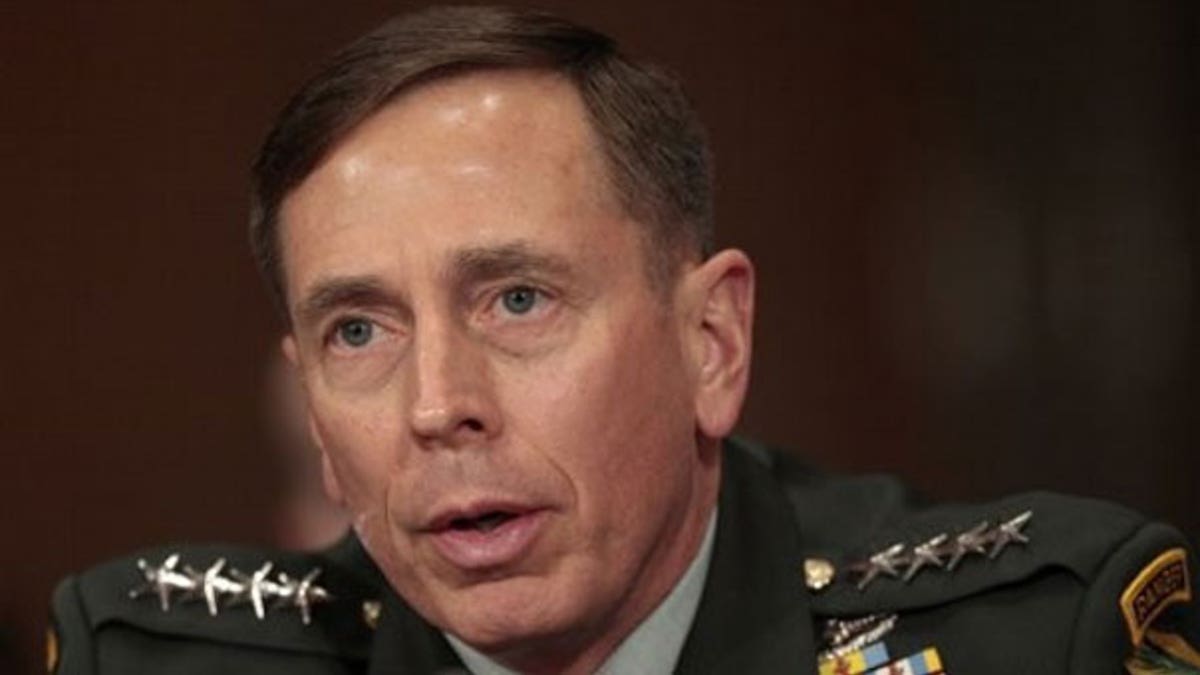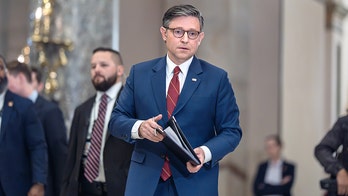
Dec. 9: U.S. Central Command commanding Gen. David Petraeus testifies on Capitol Hill in Washington before the Senate Foreign Relations Committee hearing on Afghanistan (AP). (AP)
A top U.S. general warned Congress on Wednesday that progress against the insurgency in Afghanistan will likely be slower than during the surge of American forces in Iraq two years ago.
Gen. David Petraeus, who executed the Iraq surge in 2007, told the Senate Foreign Relations Committee that he supports the escalation of U.S. forces in Afghanistan, but stressed that the "challenges are great."
Petraeus is commanding general of U.S. Central Command, which has responsibility for overseeing U.S. military activities in Central Asia, including Afghanistan and Pakistan, as well as the Middle East. He appeared with Ambassador Karl Eikenberry.
Petraeus, commanding Gen. Stanley McChrystal and Eikenberry all have said they fully support the plan laid out last week by President Obama to send 30,000 more U.S. forces and begin drawing down by July 2011.
"While certainly different and, in some ways tougher than Iraq, Afghanistan is no more hopeless than Iraq was when I took command there in February 2007," Petraeus said. Indeed, he said, the level of violence and number of violent civilian deaths in Iraq were vastly higher than what has been seen in Afghanistan.
"But, achieving progress in Afghanistan will be hard and the progress there likely will be slower in developing than was the progress achieved in Iraq," he added. "Nonetheless, as with Iraq, in Afghanistan, hard is not hopeless."
Petraeus said he believes that the new policy "will over the next 18 months enable us to make important progress."
He said he thought the change in strategy should help "reverse the Taliban momentum" while increasing the effectiveness of the Afghan security forces, improving the safety of the Afghan people and upgrading "the Afghan governance." Petraeus said he thought all those factors would help "set the conditions" leading to a possible drawdown of U.S. forces in a year and a half.
Sen. Dick Lugar, ranking Republican on the committee, said he's confident allied forces will improve security in Afghanistan, but that the biggest question is whether that will help root out Taliban and Al Qaeda havens across the border in Pakistan.
"The president has said that the United States did not choose this war, and he is correct," said Lugar of Indiana. "But with these troop deployments to Afghanistan, we are choosing the battlefield where we will concentrate most of our available military resources."
"The risk is that we will expend tens of billions of dollars fighting in a strategically less important Afghanistan, while Taliban and Al Qaeda leaders become increasingly secure in Pakistan," Lugar said.
Committee Chairman John Kerry agreed.
"Pakistan is in many ways the core of our challenge," said the Massachusetts Democrat.
He praised Pakistan's military for taking on Pakistani insurgents in offensives of recent months. "Now we are looking for Pakistan to also take on the Afghan Taliban," Al Qaeda and other insurgents in their territory, Kerry added.
McChrystal told the Senate Armed Services Committee on Tuesday that he believes the Taliban can be defeated; he defined that as weakening the militants to a point that they no longer are capable of threatening the Afghan government. His first objective, though, is to reverse the momentum the Taliban have acquired in recent years.
McChrystal cautioned against expecting immediate results, but he said progress should be evident within a year.
"Ultimate success will be the cumulative effect of sustained pressure," he said.
While endorsing the president's plan, the general said he had not recommended Obama's 18-month deadline for beginning a pullout and had preferred that more fresh forces be sent in.
Eikenberry, who had privately expressed doubts about sending a large number of additional troops, stressed the importance of widening the anti-Taliban effort to include more U.S. and NATO civilian contributions to stabilizing the country and building the credibility of the central government.
The ambassador offered words of caution about the outlook for turning around the war. "Our forces and our civilians are trying to help a society that simultaneously wants and rejects outside intervention," he said.
He also spoke cautiously of the Afghans as partners.
"In spite of everything we do, Afghanistan may struggle to take over the essential tasks of governance," he said, adding, "If the main elements of the president's plan are executed, and if our Afghan partners and our allies do their part, I am confident we can achieve our strategic objectives."
In Afghanistan on Wednesday, Defense Secretary Robert Gates toured NATO's new joint command center at the Kabul airport.
"Getting this place gives us new opportunities, especially now that there are new forces coming," he said. "We've got all the pieces coming together to be successful here."
The Associated Press contributed to this report.
























